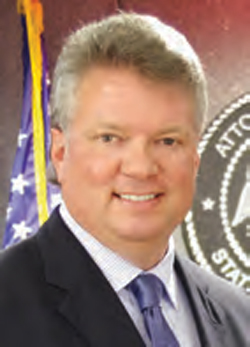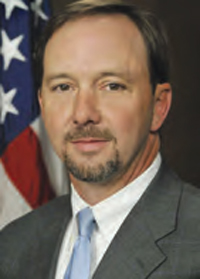
Battling the Opioid Crisis
Education. Training. Collaboration. Saving Lives. These are the goals of the 2017 Mississippi Opioid & Heroin Summit—an opportunity for all of us to face the epidemic that touches our families, friends, and loved ones. Mississippi is well on its way to becoming known as “the most addicted state in the country.”
This two-and-one-half-day Summit, held July 11-13 at Broadmoor Baptist Church in Madison, will bring together three communities—public safety, public health, and the public. The Summit is aimed at informing the community about the growing epidemic of opioid and heroin abuse in the state of Mississippi. Come learn about threats and trends from public safety officials who are tracking the supply of opioids and heroin.
Men and women in various career fields will be educated on the role that they play in fighting this epidemic. Listen to public health and treatment advocates discuss the disease of addiction and the many tools available to prescribers and treatment professionals.
People struggling to recover from addiction and their families will be offered support and guidance in taking steps toward rehabilitation. Join with the families touched by addiction to hear stories of recovery and hope.
You can also hear from Sam Quinones who documented the epidemic as a journalist and authored the book Dreamland: The True Tale of America’s Opiate Epidemic. On
Tuesday and Wednesday evenings, there will be a Family Forum that is free and open to the public from 6-8 p.m.
We’ve asked Mississippi Attorney General Jim Hood and Director John Dowdy from the Mississippi Bureau of Narcotics their feedback on a number of pressing issues in this fight.

Attorney General Jim Hood

MBN Director John Dowdy
What common threads do you see in the development of an opioid addiction? (Age, sex, economic status?)
Jim Hood: Opioid addiction can start at any time after a person takes his or her first pill. Opioids are prescribed commonly for pain associated with injuries or surgery. For example, a high school quarterback recovering from surgery may become addicted after taking opioids that were prescribed lawfully for the pain associated with surgery.
Opioid addiction typically does not develop in the shadows or the atmosphere of a drug culture. Opioids are commonly prescribed medications and many times the person taking the pills is completely oblivious to how highly addictive the medicine can be or how easily an opioid addiction can take over a person’s life.
John Dowdy: The only thread seen in the development of an opioid addiction is over-prescribing of opioids by health care providers. This addiction knows no boundaries in as far as age, gender, or socioeconomic status is concerned.
What does every smart parent need to know about the drug culture among youth?
Jim Hood: Parents should realize that no family is immune to opioid abuse and their child can obtain opioids with relative ease. It is not uncommon for parents of teenagers to be caught off-guard when their child develops an opioid addiction. This is an addiction that is becoming more and more prevalent among teenagers who have no history of drug usage and who would not be characterized as persons likely to experiment with drugs.
Opioids are not viewed as “real” drugs or “hard” drugs that are familiar to parents. Parents of teenagers today grew up in an atmosphere where they were warned about the dangers of street drugs like crack cocaine, marijuana, or heroin. Unlike crack cocaine, marijuana, or heroin, opioids are not purchased in a back alley in the bad part of town. Teenagers aren’t hesitant to try a prescription drug because it is viewed differently than an illicit drug like crack. Once they start experimenting with opioids, it’s very easy to become addicted.
John Dowdy: Parents need to know that teenagers are experimental. Our teens face a drug culture that has never been seen before. The availability of drugs in the Jr. High Schools and High Schools are at an all time high. Opioids, in particular, and other prescriptions such as Adderall are readily available due to pill sharing and theft of opioids from a parent or grandparent’s medicine cabinet.
What are the potential legal consequences for a drug offense like possessing a controlled substance without a prescription?
Jim Hood: The penalty for possession of opioids (Schedule I drug) depends on the weight of the drug or number of dosage units but ranges from 1 to 30 years imprisonment and up to a $1 million fine. M.C.A. § 41-29-139 (2013)
John Dowdy: The consequences are criminal conviction. Depending on the quantity of controlled substances, the penalty could result in a felony conviction.
Are there any safeguards of registries that exist that would deter “doctor shopping” in securing numerous opioid prescriptions?
Jim Hood: Yes, the Prescription Monitoring Program (PMP) is a registry that contains a prescription history of persons who are prescribed certain types of medications. Physicians or anyone with the authority to prescribe medication has access to this database by registering with the PMP.
In 2017, the Mississippi Legislature passed House Bill 1032 that requires all licensed practitioners with a DEA number to register with the PMP. However, the PMP is not as effective when doctors, nurse practitioners, and dentists do not have an assistant to conduct a 30-second check of the system before handing the patient a prescription or calling it in.
The opioid crisis in Mississippi is very real and the stories of families dealing with the death of a loved one are all too common. One such death touched home for me after a young Marine Iraqi war veteran, who interned in my office, died from a heroin overdose caused by his addiction to opioids due to a combat injury.
I have since filed a suit against the manufacturers of opioids for misleading doctors and our citizens about the addictive characteristics of opioids. The opioid manufacturers spent millions of dollars to convince the medical community and the public that opioids were not addictive and safe to use every day. They are not, and no studies support their false narrative that has created a nation of addicts.
John Dowdy: There are safeguards in place by way of the Prescription Monitoring Program (PMP). Health care providers need to be more sensitive to the epidemic we are in and utilize the PMP more effectively to help curb addicts trying to game the system.
Do we have any statistics on the number of crimes committed in Mississippi in 2016 that were drug related?
John Dowdy: Statewide, the numbers are staggering. Although I do not have the numbers for every police department and sheriff’s office in the Mississippi, I can tell you that the MS Bureau of Narcotics arrested 1,332 individuals in MS for drug-related offenses in 2016.
What would be the most important things every Mississippian should be aware of regarding the opioid epidemic?
Jim Hood: Anyone can become an addict and they can become one quickly.
John Dowdy: Just because you obtain a prescription from a health care provider doesn’t mean you cannot become addicted. Opioids are extremely addictive and people need to approach the use of these medications with great caution. Additionally, opioids should be properly secured in the home to prevent others from having access to them.
MBN receives reports from around the state that in home burglaries, the criminals are looking for money, guns, jewelry, and prescription painkillers. Opioids have a high street value, selling for as much as $1 per mg. Also, if someone does not use all of the pills prescribed, regardless of the prescription, those unused pills should be disposed of properly. Many police departments and sheriff’s offices have drop boxes for unused prescriptions. MBN has a drop box located in every MS Highway Patrol Drivers License station across the state.
WHY IS THE DRUG SUMMIT IMPORTANT?
-
The U.S. makes up about 5% of the world’s population and consumes over 95% of the world’s hydrocodone products.
-
Prescription drug overdoses account for nearly 60% of all drug overdose deaths. Of those deaths, 73% came from opioids.
-
Mississippi is a leading prescriber of opioid painkillers with the equivalent of approximately 70 opioid pills for every man, woman, and child in 2016.
-
The number of painkiller prescriptions in Mississippi makes us the fifth highest per capita in the nation, with 1.07 prescriptions per person.
-
In the state of Mississippi, there were 563 reported drug overdose deaths from 2013-2016 (MS Bureau of Narcotics). Of these, 481 deaths were related to opioid abuse.
-
Opioid-related deaths in Mississippi are greater than we think because they are often under reported by coroners.
-
We need a comprehensive plan involving all relevant parties: parents, educators, policy makers, opinion leaders, stake holders, media, physicians, pharmacists, counselors, law enforcement, clergy.
-
We must decriminalize addiction and move toward a treatment model for the abusers of opioids and heroin.
-
Mississippi hasn’t seen the horrific spike in abuse and overdoses that other parts of the country have. But experts tell us it’s on the way if we don’t act decisively and intelligently.
WHO SHOULD ATTEND?
-
Clinicians, counselors, social workers, therapists, psychologists, interventionists
-
Physicians, nurse practitioners, physician assistants, nurses, pharmacists, and dentists
-
Advocates, families, and people in recovery
-
Law enforcement personnel
-
Public health and prevention officials
-
Federal, state, and local officials and lawmakers
-
Education specialists and researchers
-
Treatment center owners and operators
-
Lawyers, judges, and drug court officials
CE’S –With 18.5 continuing credit hours, everyone will receive credit while gaining awareness from the perspective of others in this fight. It takes all of us working together to make a difference.
“This activity has been planned and implemented in accordance with the accreditation requirements and policies of the Accreditation Council for Continuing Medical Education (ACCME) through the joint providership of MS State Medical Association and the MS Bureau of Narcotics. The MS State Medical Association is accredited by the ACCME to provide continuing medical education for physicians.” MSMA designates this live activity for a maximum of 18.5 AMA PRA Category 1 Credit(s)™. Physicians should claim only the credit commensurate with the extent of their participation in the activity.
CME: $200.00
Clinicians needing Hours $75.00
Law Enforcement FREE
If you don’t need credits FREE

